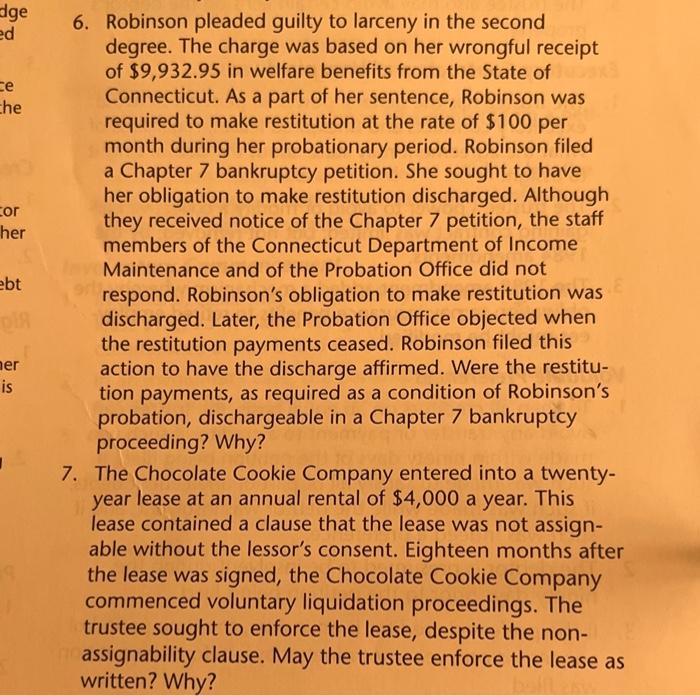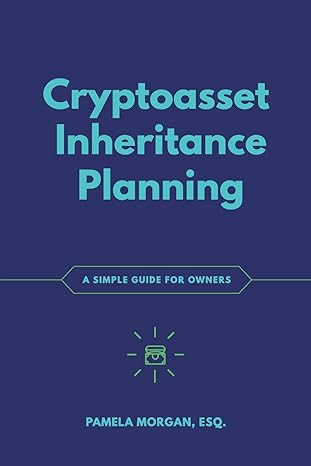Answered step by step
Verified Expert Solution
Question
1 Approved Answer
week 5 6. Robinson pleaded guilty to larceny in the second degree. The charge was based on her wrongful receipt of $9,932.95 in welfare benefits
week 5 
6. Robinson pleaded guilty to larceny in the second degree. The charge was based on her wrongful receipt of $9,932.95 in welfare benefits from the State of Connecticut. As a part of her sentence, Robinson was required to make restitution at the rate of $100 per month during her probationary period. Robinson filed a Chapter 7 bankruptcy petition. She sought to have her obligation to make restitution discharged. Although they received notice of the Chapter 7 petition, the staff members of the Connecticut Department of Income Maintenance and of the Probation Office did not respond. Robinson's obligation to make restitution was discharged. Later, the Probation Office objected when the restitution payments ceased. Robinson filed this action to have the discharge affirmed. Were the restitution payments, as required as a condition of Robinson's probation, dischargeable in a Chapter 7 bankruptcy proceeding? Why? 7. The Chocolate Cookie Company entered into a twentyyear lease at an annual rental of $4,000 a year. This lease contained a clause that the lease was not assignable without the lessor's consent. Eighteen months after the lease was signed, the Chocolate Cookie Company commenced voluntary liquidation proceedings. The trustee sought to enforce the lease, despite the nonassignability clause. May the trustee enforce the lease as written? Why 
Step by Step Solution
There are 3 Steps involved in it
Step: 1

Get Instant Access to Expert-Tailored Solutions
See step-by-step solutions with expert insights and AI powered tools for academic success
Step: 2

Step: 3

Ace Your Homework with AI
Get the answers you need in no time with our AI-driven, step-by-step assistance
Get Started


